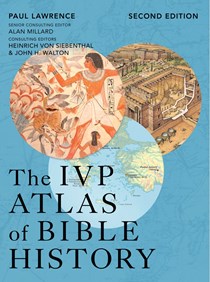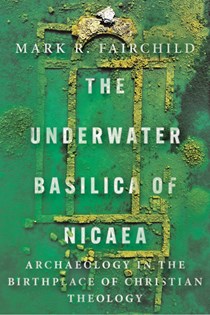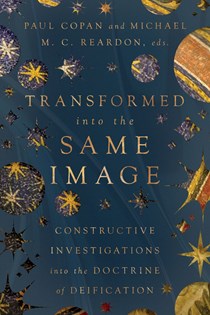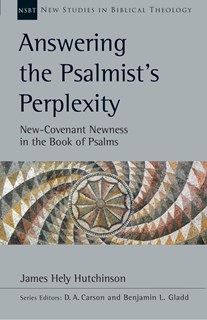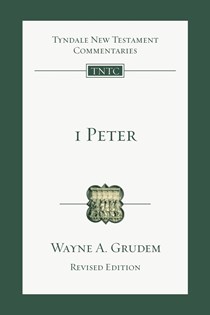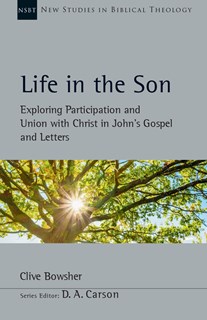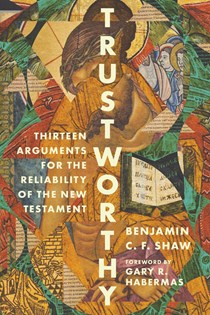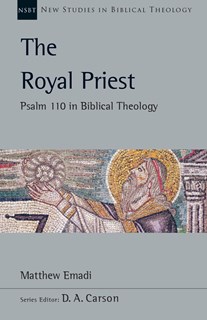Biblical Studies
-
Knowing God Through the Old Testament
Three Volumes in One
by Christopher J. H. Wright
Christopher J. H. Wright's Best Loved Books, Now in One Volume
Combining three volumes into one, Knowing God Through the Old Testament brings together three of Christopher J. H. Wright's best loved books: Knowing God the Father Through the Old Testament, Knowing Jesus Through the Old Testament, and Knowing the Holy Spirit Through the Old Testament.
Knowing ...
-
The IVP Atlas of Bible History
Consulting Editor A. R. Millard and John H. Walton
by Paul Lawrence
Consulting Editor Heinrich Von SiebenthalOpen Your Understanding of the World of Scripture
The story of the Bible is inextricably linked to the land. To understand biblical history, we need to understand how the people, events, and geography interacted to form that ancient world.
Spanning three thousand years of biblical history, The IVP Atlas of Bible History reveals the many fascinating ways that ...
-
The Underwater Basilica of Nicaea
Archaeology in the Birthplace of Christian Theology
by Mark R. Fairchild
A Firsthand Look at a Groundbreaking Archaeological Discovery
In 2014, aerial photography revealed a submerged structure beneath the waters of Lake Iznik, near the ancient city of Nicaea. The structure appeared to be in the shape of an ancient basilica church, with a nave, aisles, and an apse pointing to the east. The discovery was named one of the top ten archaeological discoveries ...
-
Transformed into the Same Image
Constructive Investigations into the Doctrine of Deification
Edited by Paul Copan and Michael M. C. Reardon
Foreword by Michael J. GormanThe doctrine of deification or theosis has been gaining interest among scholars for some time. Yet most publications on the topic have focused on Orthodox and Roman Catholic traditions and have subsumed the discussion under the category of soteriology. If "being transformed into the same image" (2 Corinthians 3:18) is truly essential to the Christian life, a fuller understanding ...
-
Answering the Psalmist's Perplexity
New-Covenant Newness in the Book of Psalms
New Studies in Biblical Theology
by James Hely Hutchinson
Series edited by D. A. Carson and Benjamin L. Gladd"Give thanks to YHWH, for he is good, for his covenant faithfulness endures for ever" (Ps 136:1).
There are now numerous models that seek to explain how the biblical covenants relate to one another. In an attempt to evaluate these models, James Hely Hutchinson mines the rich seams of the book of Psalms in this New Studies in Biblical Theology volume.
After covering the ...
-
1 Peter
An Introduction and Commentary
Tyndale New Testament Commentaries
by Wayne A. Grudem
Series edited by Eckhard J. Schnabel
Consulting Editor Nicholas PerrinPeter's short letter to the "exiles of the dispersion" addresses many topics: holiness, the sufferings of Christ, God's sovereignty in salvation and life, the grace of God, the work of the Holy Spirit, the church as the new people of God, the reality of the unseen spiritual world, and trusting in God in the midst of daily circumstances. What ties all these concepts together, Wayne ...
-
Life in the Son
Exploring Participation and Union with Christ in John's Gospel and Letters
New Studies in Biblical Theology
by Clive Bowsher
Series edited by D. A. CarsonThe New Testament writers use spatial language and imagery to portray our relationship with God, speaking both about God or Christ in us and us in them. Believers are also described as possessing and participating in divine qualities such as life and glory. Both aspects are prominent in John's Gospel and letters. However, outside the Pauline writings, union with Christ has hardly ...
-
A Bird's-Eye View of Luke and Acts
Context, Story, and Themes
by Michael Bird
What do the books of Luke and Acts teach us about God, Jesus, and the early church? How do these two books relate to each other? And what do they mean for us today?
In this accessible and compelling introduction, Michael Bird draws us into the wide-ranging narrative of Luke-Acts to discover how Luke frames the life of Jesus and of the first disciples who set out from Jerusalem ...
-
Trustworthy
Thirteen Arguments for the Reliability of the New Testament
by Benjamin Shaw
Foreword by Gary R. HabermasHow do we know the New Testament is reliable?
It matters—but discussions on whether the New Testament is historically accurate can be tedious and overwhelming. We want to be confident that the reports in the New Testament are true and dependable, but scholarly discussions around the authenticity of the events recounted in Scripture can be challenging to navigate.
Dr. ...
-
The Royal Priest
Psalm 110 in Biblical Theology
New Studies in Biblical Theology
by Matthew H. Emadi
Series edited by D. A. CarsonDespite its importance in the New Testament and the priestly messianic promise identified by King David, relatively little has been written on Psalm 110 from a biblical-theological perspective.
By considering David's biblical warrant for bringing together priesthood and kingship in a single figure, Matthew Emadi shows how we are able to uncover the theological foundation on ...



